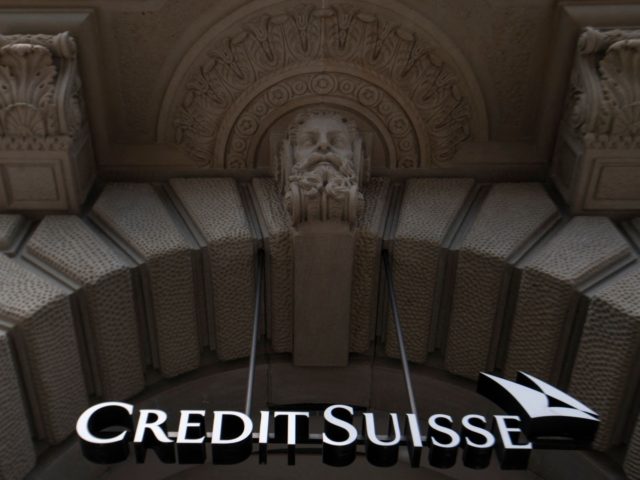Groups representing over half of all members of the European Union Parliament, including The European People’s Party (EPP) — the largest group in the chamber — has called on the bloc to add Switzerland to a list of high-risk money laundering countries following an investigative report.
The EPP parliament group released a statement Monday following a report into the anti-money laundering practices of the Swiss bank Credit Suisse by the newspaper Suddeutsche Zeitung over the weekend, which looked at leaked data sent to the newspaper last year.
The EPP was subsequently joined by two other European Parliament groups — the Socialists and liberal Renew factions, the second and third-largest groups respectively — in their condemnations on Tuesday. In all, the three groups represent 422 Members of the European Union, well over half of the Europarl’s total 705 members.
According to the Organized Crime and Corruption Reporting Project (OCCRP), who also analysed the leaked data, Credit Suisse had catered to a number of criminals, dictators and others who should not have even been allowed an account at the bank.
Markus Ferber MEP, the EPP Group’s Spokesman in the Economic and Monetary Affairs Committee, commented on the reports saying, “Bank privacy laws must not become a pretext to facilitate money laundering and tax evasion.”
“The ‘Swiss Secrets’ findings point to massive shortcomings of Swiss Banks when it comes to the prevention of money laundering. Apparently, Credit Suisse has a policy of looking the other way instead of asking difficult questions,” he added, the Guardian reports.
” When Swiss Banks fail to apply international anti-money laundering standards properly, Switzerland itself becomes a high-risk jurisdiction. When the list of high-risk third countries in the area of money laundering is up for [ ] revision the next time, the European Commission needs to consider adding Switzerland to that list,” Ferber said.
In a subsequent report, the Guardian also cited the remarks of Socialist group spokesman Jonás Fernández, who said of the revelations: “These latest revelations show that too many of the world’s largest banks have still not learned their lesson. Banks are only too willing to accept dirty money, as long as they can pocket the fees.”
Credit Suisse replied to the allegations against the bank, saying, “The matters presented are predominantly historical, in some cases dating back as far as the 1940s, and the accounts of these matters are based on partial, inaccurate, or selective information taken out of context.”
“Approximately 90% of the reviewed accounts are today closed or were in the process of closure prior to receipt of the press inquiries, of which over 60% were closed before 2015,” the bank added.
The source who leaked the information to Süddeutsche Zeitung commented on why they leaked the data saying, “I believe that Swiss banking secrecy laws are immoral. The pretext of protecting financial privacy is merely a fig leaf covering the shameful role of Swiss banks as collaborators of tax evaders.”

COMMENTS
Please let us know if you're having issues with commenting.